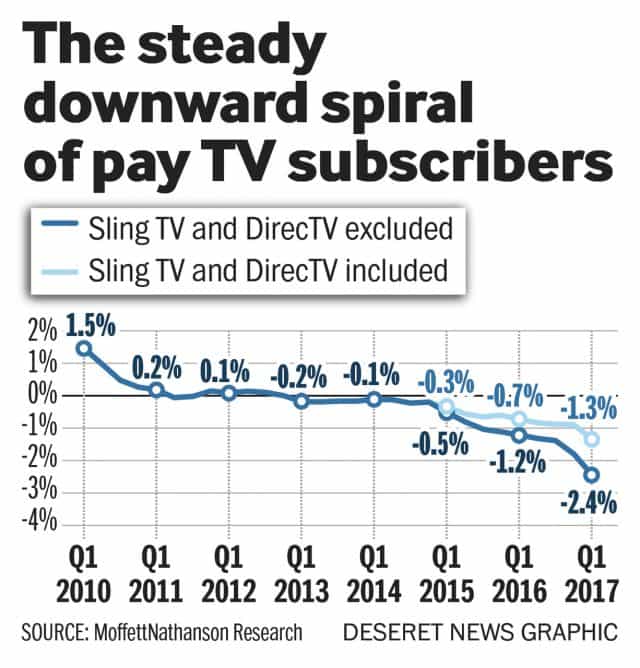 A Wall Street media analyst called today’s television model of high returns and relentless rate increases passed on to pay television customers unsustainable.
A Wall Street media analyst called today’s television model of high returns and relentless rate increases passed on to pay television customers unsustainable.
Sanford Bernstein media analyst Todd Juenger told attendees of The Independent Show (courtesy: Multichannel News) in Indianapolis that media companies expecting to profit from linear TV’s increased advertising revenue and retransmission or carriage consent fees are going to get slapped in the face soon as consumers revolt.
Juenger, like BTIG’s Rich Greenfield, is becoming increasingly pessimistic about today’s costly bundled-TV model. Juenger warns high revenue and profit expectations are only going to accelerate the growth of disruptive technologies like on-demand, online video.
Juenger notes cable and television networks never seem satisfied with the massive amounts of revenue they are already earning, and keep seeking ways to raise prices further. The TV business, Juenger notes, already enjoys some of the highest profit margins of any U.S. business in modern history.
“This is a very, very rare thing,” Juenger said. “Companies are not supposed to make that kind of money.”
 Most cable networks now expect 40% annual revenue increases and a 30% return on capital, which is what causes runaway programming rate increases to be passed on year after year to consumers. Yet the quality of those networks has not significantly improved in many cases, and consumers are gradually shifting away from watching live television (and the commercials that accompany it).
Most cable networks now expect 40% annual revenue increases and a 30% return on capital, which is what causes runaway programming rate increases to be passed on year after year to consumers. Yet the quality of those networks has not significantly improved in many cases, and consumers are gradually shifting away from watching live television (and the commercials that accompany it).
Viewers, starting with younger generations, are increasingly ditching linear-live television and finding on-demand content to be more appealing. Much of that viewing isn’t taking place on the cable industry’s on-demand or TV Everywhere platform, which has become as littered with advertising as live television. Instead, viewers are drawn to original productions produced by Hulu, Netflix, Amazon, and other content platforms — often commercial-free, and on-demand network shows on platforms like Hulu.
“The whole reason for being for networks is called into question,” Juenger said.
Juenger dismisses the current industry trend of creating virtual online alternatives to cable television bundles — skinny or otherwise — for streaming online. Those efforts, like Sling TV, DirecTV Now, and PlayStation Vue still depend on linear television as their core product, and cord-cutters are showing a growing lack of interest in this model.
Cord-cutters and cord-nevers don’t want smaller, more economical bundles of cable networks delivered online, according to Juenger.
“I don’t think there is anybody who wants these products on an incremental basis,” Juenger said. “If the purpose of these services is to recapture subscribers that were lost, they’re not going to work.”
Viewers want an entirely new model, built around on-demand access to individual shows without viewing restrictions or having to pay for unwanted channels. Many are also willing to pay a little more to avoid commercials altogether.


 Subscribe
Subscribe



 “I think that in general, there is probably too much commercial interruption in television,” Disney CEO Bob Iger told investors on the company’s first-quarter earnings call.
“I think that in general, there is probably too much commercial interruption in television,” Disney CEO Bob Iger told investors on the company’s first-quarter earnings call.
